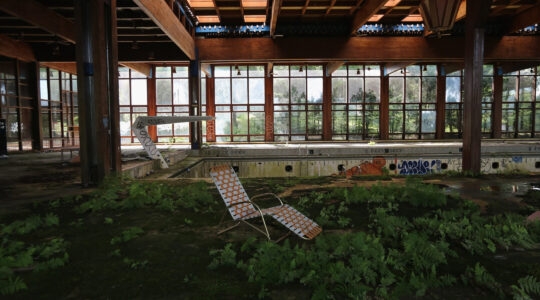After Egypt’s wondrous revolution the Middle East will never be the same again. Egypt is so large and so consequential that such profound political change there is bound to impact everything, including the prospects for Israeli-Palestinian peace. Is it a threat to peacemaking or an opportunity?
The idea that Israel and the Palestinians have, at long last, been given an ideal opportunity to come to a peaceful resolution of their long-standing differences might sound outlandish to some and heretical to those who think that Israel should now hunker down and prepare itself for armed conflict, or use the Egyptian crisis to gain more time to do nothing.
Despite the fact that the peaceful revolution has succeeded, Egypt will have many problems on the way to democracy. The first is its economy, which was already struggling before the protests brought it to a temporary halt. The interim government and its freely elected successor will have to provide major incentives to businesses to invest in equipment and create the job opportunities that the people are demanding. Those who massed in Tahrir Square and elsewhere throughout the country no doubt will lack patience. Those who have graduated from college and were promised jobs by the former government must have access to them. Not menial jobs, but the serious jobs that the educated youth expect in a sophisticated society.
As Egypt’s neighbor, Israel can help. Israel’s technological brilliance, her breakthroughs in so many fields, from irrigation to nano-technology, can be of huge advantage to a new democratic Egypt in search of 21st-century jobs for its young people. The Palestinians are benefitting from an important increase in their standard of living, at least on the West Bank. That could be a helpful signal for both Jordanians and Egyptians, knowing that with the proper infrastructure economic advances certainly are possible.
But first, Israelis and Palestinians must end their conflict by establishing clear and recognized borders between two states living in peace. So long as they prey on each other, their ability to relate positively to the events around them will be hampered. In fact, from Israel’s standpoint, the status quo will have a profound negative influence. Israel is no longer considered the David, surrounded by the Arab Goliath, nor has it been since 1982. Israel is now viewed in the Arab world and beyond as Goliath, protected by the United States. It is seen as an occupier denying freedom to the Palestinians as surely as Hosni Mubarak denied freedom to the Egyptian people. As long as it fails to end the occupation, Israel will be seen to be on the wrong side of history.
That is a shame, for Israel, as the first democracy in the Middle East, could do so much to help Arab democracy emerge from the ice age imposed by its autocratic leaders. Imagine a reformed, democratic Egypt; a peaceful, democratic Palestine; a Jordanian constitutional monarchy; and a democratic Israel, no longer considered a pariah by its neighbors, no longer an occupying nation, no longer the “imperialist” country of the Middle East. Imagine how cooperation between these democracies could lead and benefit the rest of the region, politically and economically.
When Shimon Peres dreamed of a “new Middle East” two decades ago, the region was not yet ready for his vision. But today the Internet and new social media have made the 21st-century revolution possible in Egypt. These cheap and efficient means of connecting people defy physical borders as much as they defy governmental controls. Imagine if Israel’s tech-savvy youth connected with their Egyptian, Palestinian, and Jordanian counterparts and rose up in unison to demand that their elders put an end to their 20th-century conflicts. Would Prime Minister Netanyahu and President Abbas then respond by creating their own peaceful revolution?
Let the Egyptian people’s example guide them in breaking the bonds of fear and mistrust. Let them now garner the courage to go forward and let peace no longer elude them.
Charles Bronfman is chairman of the Andrea and Charles Bronfman Philanthropies. This piece first appeared in Hebrew in Yediot Achronot.
The New York Jewish Week brings you the stories behind the headlines, keeping you connected to Jewish life in New York. Help sustain the reporting you trust by donating today.




